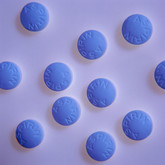Generics/Research
|
Posted 09/10/2015
The cost of antiretroviral therapies (ART) for the treatment of human immunodeficiency virus (HIV), which is now considered a chronic disease [1], represents an increasing burden for healthcare services worldwide. In particular, the availability on the market of new antiretroviral drugs, often more effective and more expensive than those available, lead to the need to identify cost containing strategies to ensure the economic sustainability of the healthcare service and to provide effective treatments to patients. Over the next few years, several patents for antiretroviral drugs will expire, giving the possibility for generics to enter the market. The availability of new generics on the market, may lead to a lowering of ART costs, and therefore to the affordability to provide the aforementioned new and innovative drugs.





















